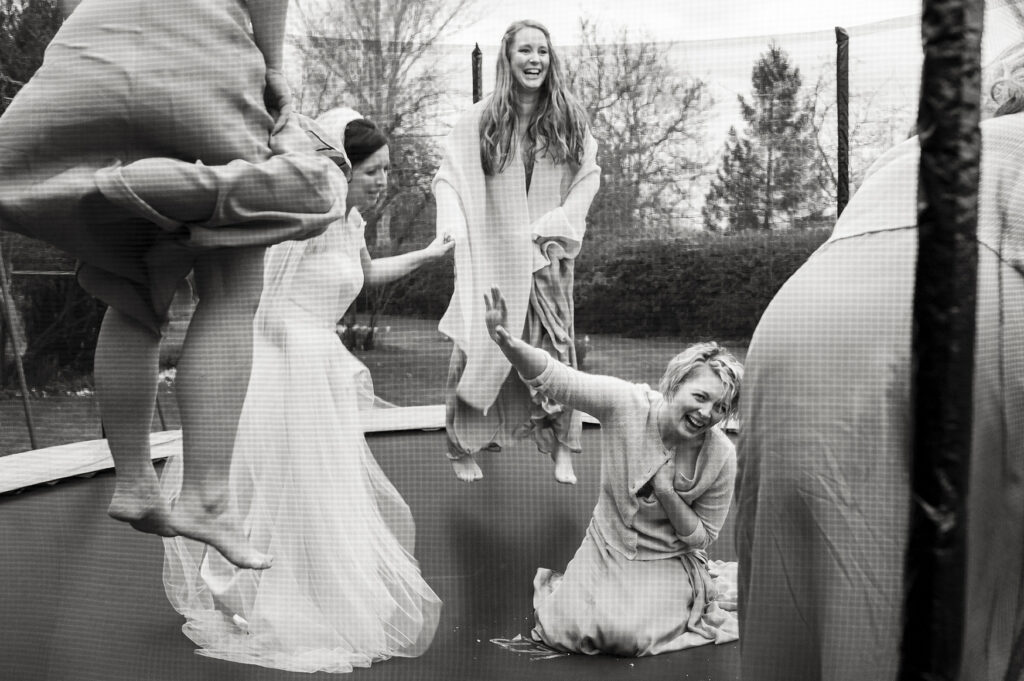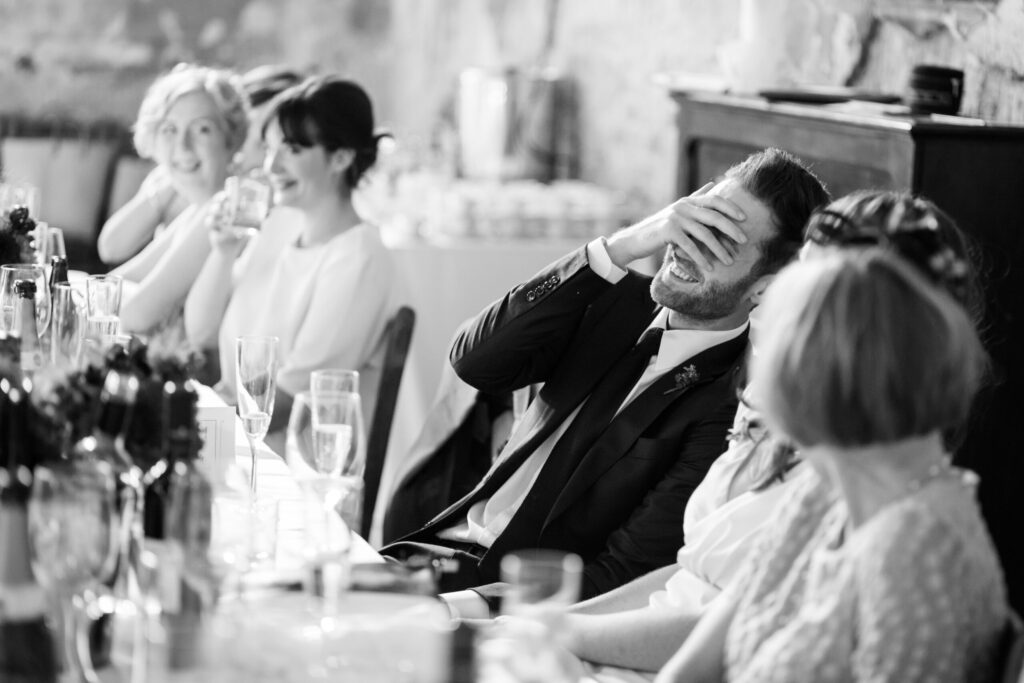I am a documentary wedding photographer based in Ottawa. From when I first began studying photography in 1997 I developed a deep respect and passion for documentary and reportage photography. Back then, there was really no such thing as ‘Documentary wedding photography’. Wedding photographers focused primarily on portraits, a handful of ceremony, speeches, and cake-cutting images, and an album was always part of the package. Then a few years later, as press photographers were pushed out of business through the improvements and ease of use of digital cameras, they moved into other fields of photography, and a new style of wedding photography was born. But what is documentary wedding photography? To a purist photographer, it may seem like a contradiction. If you are being paid to photograph people in a contrived setting, how can it be ‘Documentary‘ in style in its truest sense? Whenever there is a financial transaction that takes place there are requirements that can limit and restrict the photographer. Let’s begin at the beginning with a definition…
A definition of documentary photography
My Focal Encyclopedia of Photography (3rd edition, published in 1993) has a lengthy half-page entry on documentary photography. It states…
“From its inception in 1839, photography was heralded as the epitome of realistic representation, in large part because of its unique ability to show things in literal, objective, and commonly understood visual terms. The medium’s unsurpassed power of realistic representation rested on its precision, clarity, sharpness, impartiality, truth to nature, and compelling believability. Photography thus provided evidence of places and events in an accurate and truthful way, the cornerstone of factual documentary reporting.
Although it may be said that any photograph is documentary because it shows what actually occurs in front of the camera, the documentary genre in photography is more specifically based on the premise that the photograph is a transcription of reality that contains fact, evidence, and truth. Documentary photography therefore is expected to alter events as little as possible from reality, i.e., to show what would have occurred or existed had the photographer not been present, and to provide the viewers with substantially the same experience as contained in the original event.”
Focal Encyclopedia of Photography (3rd edition, published in 1993)
It goes on to explain that a documentary photographer should take an ‘unmanipulated’ approach and prioritize subject over style. While at university, one of my professors argued that a true documentary photograph should just show the raw evidence of the event or thing the photographer is seeing as objectively as possible and avoid trying to make anything look ‘beautiful’. While I don’t entirely disagree with that approach, I also don’t think it is possible to photograph anything objectively. I think it is almost foolish to believe that as a photographer, our own personality, background, knowledge, experience, and photographic equipment are not going to impact how we choose to frame an image and the resulting picture that is the outcome of those choices. Even the sensor on the camera picks colours and exposure that are specific to a culture and time. Each individual person also sees an image in their own way, apart from the obvious sociological factors, even biological ones like our eyes that don’t see colour the same from person to person. And then if you factor in where an image is seen and in what context, what other images or objects are around the image, you find there are almost infinite factors that impact how a viewer will perceive an image.

Is it even possible to be a documentary wedding photographer?
So if I think the attempt to be objective is almost foolish but I describe myself as a documentary wedding photographer, am I a fool? Maybe. However, I return to the original statement above that in documentary photography, the photographer is expected to alter events as little as possible from reality. So since I am aware of my impact on the final image, as a photographer, I therefore need to accept that I am part of this reality. In documenting an event and avoiding manipulation, I need to make myself a part of that event to a certain extent and immerse myself in the moment. That is why I am almost playing a part, acting as a guest. I know I can’t hide, everyone can see I have cameras hanging off of me and I’m often standing while others are sitting. But if I can blend in as much as possible so that guests get used to my presence and I talk to people just enough to learn about who is who and where people are from and little details like that, I can pretend enough so that I am part of the reality. Doing this also gives me access, which is an important part of documentary photography. Gaining trust in this way allows people to be at ease around me, further allowing me to avoid manipulation.
Additionally, I need to be in accord with the event that is taking place. If I was at all cynical about weddings or the ceremony itself, it would show in the images. When a documentary wedding photographer is feeling the emotions of the day alongside the guests and has a good rapport with the bride and groom in particular, it will show in the images. Some might say that this is now biased and not truthful. But even in documenting a war zone, there is unavoidable bias. However, if one can show compassion for others, then one will get closer to the truth and reality that a documentary photographer seeks.

Then what of the ‘beauty’ in the images? Does that not take away from the truth and reality part? Yes and no. Some would say that when an image is compelling, it is unavoidably beautiful and in that way can better speak to an audience. An ‘ugly’ image may show more of the raw reality of a situation and might be needed in some scenarios, but it is also more likely to be lost among the crowd of pictures and its message lost. I would also argue that there is beauty to be seen in all things, not unlike the beautiful tragedy of a Shakespearean play.
Ottawa Wedding Photographer
I’ve been developing my skills as a documentary photographer since I started learning about it at university in 1997. My first year photography professor worked for the Red Cross documenting land mine victims and I was lucky enough to meet Bruce Gilden and one of Martin Parr’s publishers when working at a photography gallery in Germany. I studied the work of Dorothea Lange, Walker Evans, Sebastião Salgado, Diane Arbus, and many others. Since then I have practiced my craft, doing street photography and personal projects alongside wedding photography. And although I have recently learned that this is a ‘trend’ in wedding photography, it’s just the way I’ve always worked, so I’m glad to finally be cool! As an Ottawa Wedding Photographer based in the capital of Canada, I would love to document your Wedding event. Contact me to book a consultation for your wedding today.
